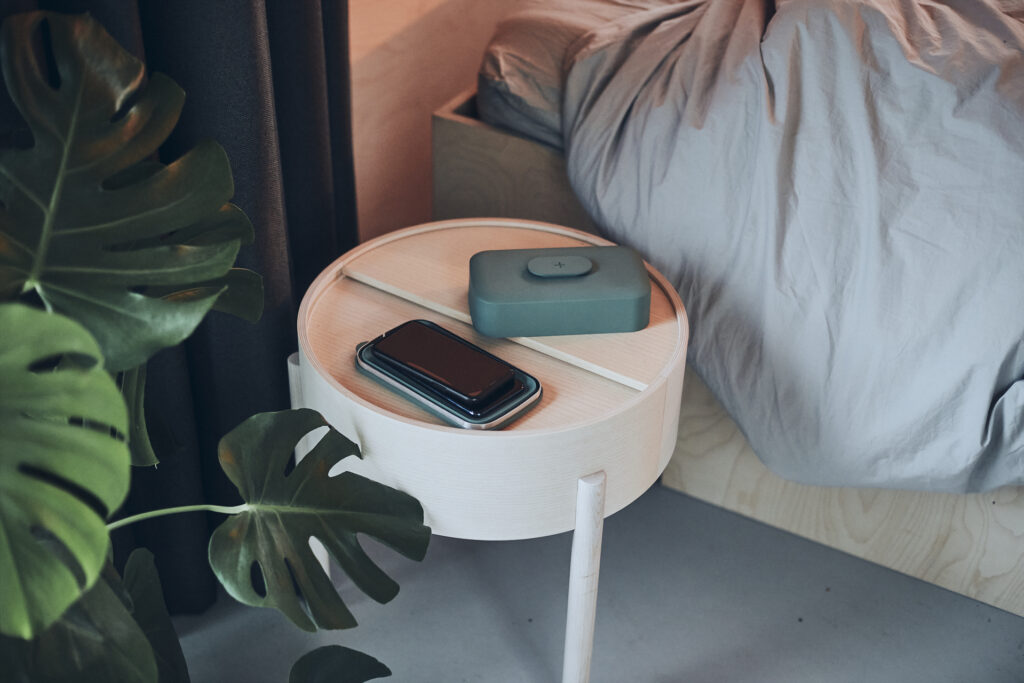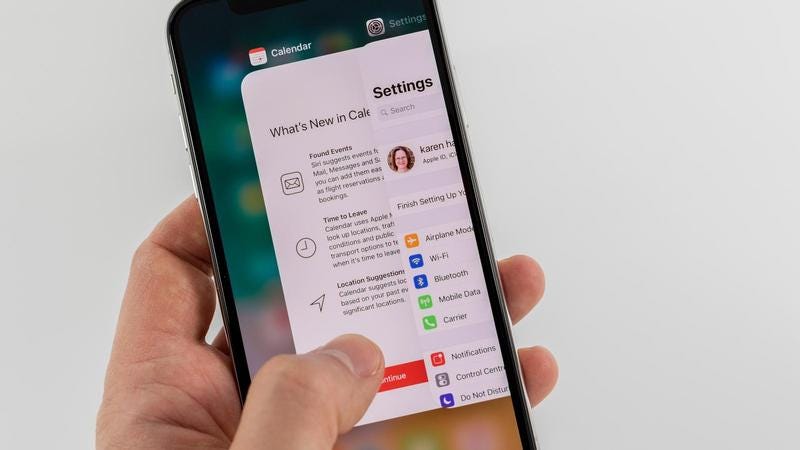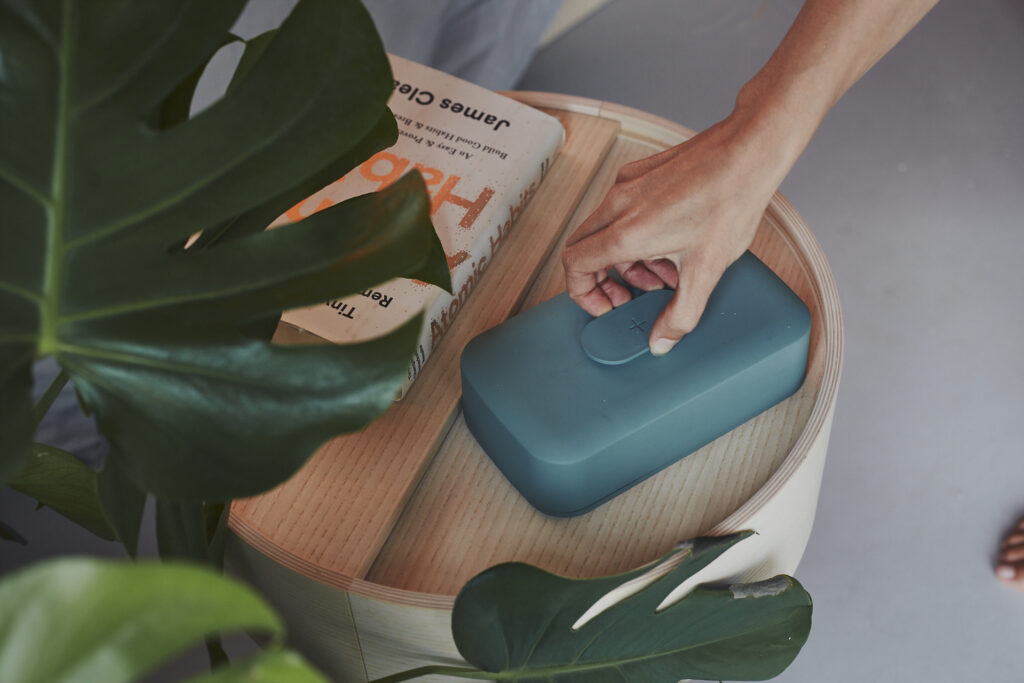by Julien Yee

Julien Yee is the cofounder of JUCE. JUCE builds smart products that enable people to mute the digital noise in the ‘age of distraction’. To focus on what matters and make every moment count. Its latest product Stolp was created in response to the ever growing habit of being always connected, always on. With Stolp they too want to allow some ‘time off for the always on’.
Investment of a lifetime
With time as life’s universal currency, phrases like “paying attention” or “investing time” can be taken quite literally.
And since we all get a tiny finite amount, it’s the most precious thing we have. What you decide to pay attention to in life is how you’ll spend your days, and ultimately how you spent your life.
The superpower of habits
Scientists estimate 40-50% of all our time spent is the result of a ‘habit’ — a repeated behaviour which tends to occur almost subconsciously.
“Men’s natures are alike, it is their habits that carry them far apart” — Confucius
Lighting up a cigarette after each meal? Checking your phone right after waking up? These things feel spontaneous, maybe even trivial, but their impact can’t be overstated.
Habits are truly the invisible hand shaping your life and identity. Good ones are powerful tools to become the person you aspire to be. And bad ones trick you — first they’ll lure you in with some instant gratification (“hmm fast-food”) but eventually lead you into a bad place (“I am overweight”)
Bad habits fuel many of the things we call ‘distractions’, pulling you away from the life you really want.
Habits take all forms and sizes. A general rule of thumb: the smallest ones done consistently over a longer period of time have the biggest impact. Here’s a great example to illustrate:
Compare training for a half marathon versus the long-term habit of running 5k every morning before breakfast… Which person would you bet on to have the longest lifespan?
What’s around, comes back around
One of the most interesting ways behaviour takes shape, is the impact of the physical environment and context.
“Time” and “location” are known as some of the most common cues for a habit to kick in. And since our days are predictably organised around spending specific slots of time in the same location (e.g. 9 to 5 at the office desk), this means your daily physical spaces play a huge role in determining how you spend your life.
Secondly, humans are highly driven by visual input. Experts believe that half of your brain’s resources are allocated to sight.
What you see is thus not only what you get. It’s to a great extent also what you do.
So, when you read the phrase ‘be the architect of your own life’ that’s actually not very far from the actual truth. By remodelling the environments you spend the majority of your days in, you can effectively steer your life in a different direction.
As we evolve as a species, so do our habits. Or at least how they’re taking shape. While the digitalisation of human life follows Moore’s Law, homo sapiens’ biological behavioural code has been pretty much the same for the last 150,000 years. This creates tension and causes a constantly evolving debate on how to balance technology versus life.
Pocket-sized habits
Digital technology has shaped many of our popular modern habits in the last few decades. The ‘smartphone’ being by far the most significant habit-forming invention in recent history. Mobile apps figure out how to meet a need or desire in your daily life, create a habit around it and keep you coming back for more:
- Bored? Endless personalized video entertainment on your YouTube feed.
- Seeking social validation? Check the status of those likes, comments and follows on your Instagram account.
The business model is quite simple: they provide us with handy tools, in return we ‘pay’ with our attention which is then monetized. By meticulously engineering and reinforcing the habit the wheel keeps on turning, ever faster.
Imagine you could precisely schedule how much screen-time you’ll spend this week on Monday morning. Would you plan to spend more or less hours on social media?

For most, the answer to this question is a rhetorical one. And the question in itself useless – unless you’re a robot. Although it doesn’t offer any hope for a solution, it does make a point: our phone is creating a growing gap between the life we want and how we’re actually spending it.
Today already, the average person spends 25% of his waking life on a smartphone screen, and for most that’s way more than they actually want to. Why is that the case one might ask?
Surely, you must have had a similar experience? Suddenly realising you spent the last 10′ on Facebook and don’t even remember why you’re there in the first place. Almost like trying to remember the beginning of a boring dream.
Well, our most time-consuming smartphone apps usually deal with our deepest internal emotions — called an ‘itch’. Anytime we open these apps we ‘scratch’ the ‘itch’ in order to make the discomfort go away.
But non-stop ‘scratching’ can hurt us. As some research indicates, the best way to deal with our negative emotions is to ‘surf’, not constantly numb them.
Once you pop, you can’t stop
Ironically, rock-solid phone habits have become ‘no brainers’. Once fully engrained, they don’t need external triggers to launch off anymore. They kick in within a split second whenever you feel that ‘itch’ and before you know you’re staring down a screen.
Turning off your notifications is a start, but breaking with your bad smartphone patterns takes more than only removing the external triggers.

Additionally, once that screen pops you rarely take halt after the first app. A screen session quickly turns into a well-routined dance from one app to the next one. Apple & Android are here to help — flicking between those apps is child’s play these days.
A majority of people are still not fully educated on the basic mechanics behind our ‘smartphone habits’. This is crucial, though, if we hope to break the pattern and come up with clever ways to outsmart our phones.
‘Outsmarting your phone’ for dummies
If you can’t beat them, join them. The same goes for habits. You don’t really kick a bad habit, you simply replace it with a new one.
Here’s a simple formula taken from the must-read ‘Atomic Habits’ (J. Clear) on building a new habit = make it obvious + easy + attractive + satisfying. I’ve explained that a powerful tactic is to re-engineer the set up and signals in your environment.
Figure out a way to make the cue for a new habit obvious to see — at home or the office for example. Make it so simple even your grandmother could do it. And finally, try to create a small experience around it while putting a little reward at the end. This ain’t no rocket science. You can start small, start today.
We feel like behavioural change comes from heroic amounts of motivation. It certainly doesn’t have to be and isn’t most of the time. Humans have a hard time grasping exponential effects of doing something small & consistent over time to leverage big change.
We can take a similar approach when it comes to our smartphone habits. We can make phones work for us, not the other way around. You don’t have to throw away your mobile device. And kicking your bad phone habits doesn’t require an unrealistic amount of self-control.
We figured out how to use technology to crack our behavioural code and to build apps around it — surely we can reverse engineer and do the exact same thing to reclaim a lot of our time & attention?
Don’t try going from 1 to 0. Rather introduce small changes when it comes to your phone, and use technology as your companion. I’ve come up with some heuristics which come in handy.
Ssshh notifications, dial up conversations
This is how Stolp came to be. Stolp by JUCE is A radiation-free faraday cage that, once fully closed, will allow no signal in or out. No more pings, rings or incoming notifications.
You fully unplug and break with the habit of being ‘always on’. Unplug, unwind and reconnect with that what truly matters and the reason why we chose the partner up with JUCE and their Stolp solution, soon available in every Slow Cabin.

→ more on Stolp? Info & sign up for pre-order http://www. getstolp.com
Book references
- ‘Indistractable: How to Control Your Attention and Choose Your Life’ by Nir Eyal (https://www.nirandfar.com/indistractable/)
- ‘Hooked’ by Nir Eyal (https://www.nirandfar.com/hooked/)
- ‘Atomic Habits’ by James Clear (https://jamesclear.com/atomic-habits)
- ‘Meditations’ by Marcus Aurelius (https://www.goodreads.com/book/show/30659.Meditations)
SHARE THIS ARTICLE
If you enjoyed reading this story, why not share it?




